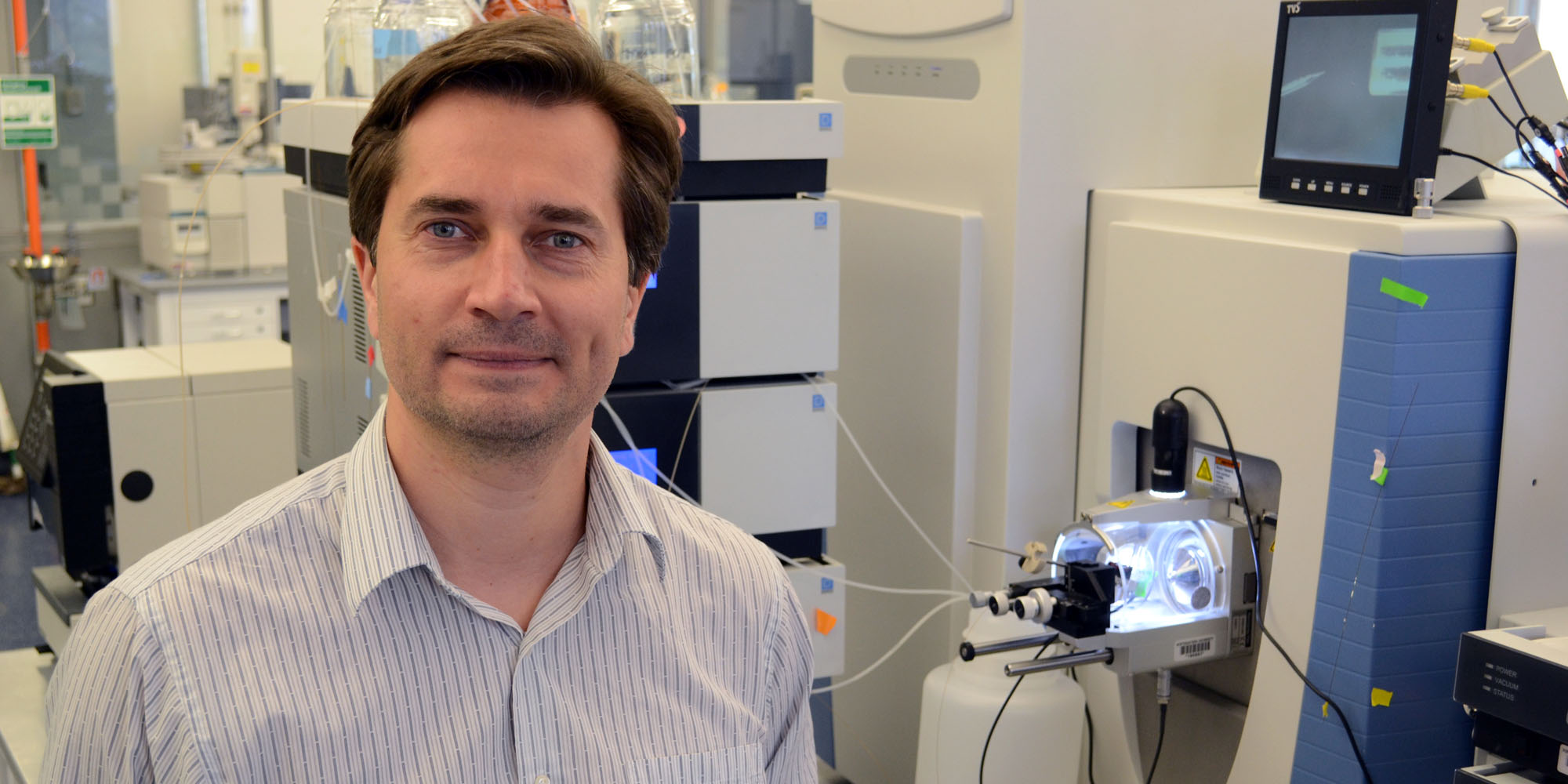Northeastern University’s Barnett Institute is a chemical analysis and research center that is home to cutting-edge interdisciplinary work that spans across Boston, from local hospitals and medical centers to various biotech/biopharma and instrument development companies. Since its founding in 1973, scientists within Barnett have produced more than 1,000 published papers and won millions of dollars in grant money, and now they have one more accolade to add to that extensive list.
Alexander R. Ivanov, an associate research professor in the College of Science and the Barnett Institute, with assistance of collaborators Dr. Shashi Murthy, of Northeastern’s Chemical Engineering Department, and David Frank, of the Dana-Farber Cancer Institute, was recently awarded a $1.5 million grant from the National Institutes of Health and the National Institute of General Medical Sciences.
Ivanov’s work, which led to a prestigious American Society of Mass Spectrometry research award in 2015, focuses on characterizing rare cells in blood. “In quite a few blood cancers, cancer can be treated; cancer cells can be eliminated from the body, but then hematopoietic stem cells, that are precursors to all blood cells, are also eliminated from the body, and they have to be reintroduced into the system,” explained Ivanov. “And one of the current approaches is to reinject transplant hematopoietic stem cells into the patient, and unfortunately currently doctors don’t have too many tools to predict the outcome of these transplants in patients, they can typically only enumerate the cells prior to transplantation.”
The purpose of this grant is to further the mass spectrometry- and separation-based technology used in the molecular characterization of scarce samples and then apply that technology and knowledge to proteomic analysis of rare hematopoietic stem cells, allowing for the creation of personalized treatments for those going through leukemia or other hematological cancers.
“The grant is about advancing technology to characterize limited samples at a very high sensitivity and depth of proteomic profiling,” explained Ivanov. “When the analytical technology is developed, it will be coupled with cell isolation from whole blood and sample processing…and when the integrated technology is in place… we’ll work on clinical applications.”
This is the work that represents one of Ivanov’s major research interests, and this grant lets him take it one step further by allowing for the development of novel analytical technologies to enable detailed characterization of functional states of rare cell populations. Such technologies are expected to empower new research directions and biomedical applications that require very minute sample amounts and potentially single cells.
The key aspect of Ivanov’s work, both in and out of this grant, is that the cells and samples he studies are limited. Within the world of patients suffering from blood-based cancers, the research being done on improving success of cell transplantation is limited to the work scientists can perform with precious donor samples often available at the level of 10s to a few 100s of cells. However, current proteomic technologies do not yet allow for deep characterization of such samples to secure successful cell transplantation and optimize implementation of new therapeutic strategies.
These transplants, performed without firm characterization of involved cells, can have mixed results. This leads Ivanov and his coworkers to believe that donors’ hematopoietic stem cells are in different phenotypic states, and there is a specific state (or states) that is (are) required for proper donor acceptance (engraftment) of the transferred cells. “The belief is that these cells, they can be in different activation and differentiation states,” said Ivanov, “and knowing these states would give us a better leverage on predicting the outcome or selecting the proper cells or proper donors for transplantations. The proposed technology will be applicable to other cell types (for example, circulating tumor cells, CTCs) and trace sample amounts (for example, cells available through microbiopsies), which will be of high importance for addressing major challenges in various biological and clinical applications.”
The work Ivanov plans to complete with his grant will not only allow for deep and highly sensitive proteomic characterization to pinpoint factors to improve the odds of successful transplantation, but it will also do so using minuscule amounts of sample, leaving more precious isolated donor cells left for actual therapeutic use. He also plans to lay the foundation for informative proteomic profiling of single cells within this funded project.

